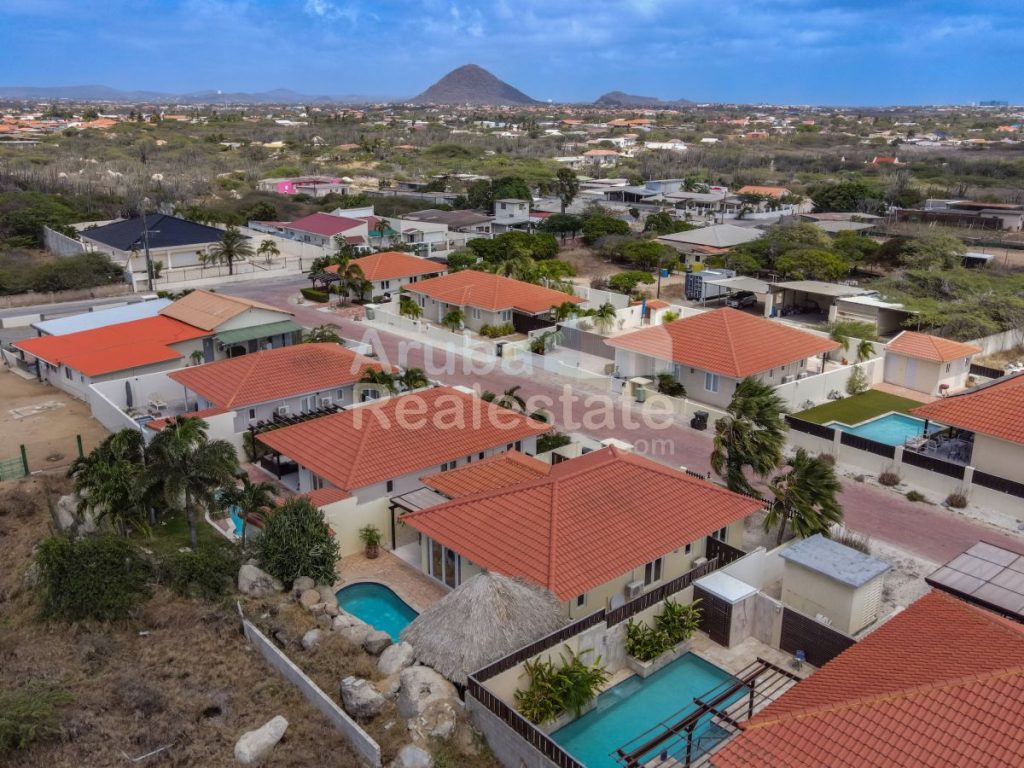Buying property in Aruba
Sometimes it is assumed that special permission is required for non-residents to purchase property in Aruba, but this is not the case. The process for a non-resident purchasing property in Aruba is the same as for a resident.
Types of land upon which houses are built in Aruba
There are two main types of land upon which most homes in Aruba are built. The first type is freehold property land (referred to locally as eigendom). This is land owned outright by the owner of the deed.
The second type is leased land (referred to locally as erfpacht). Leased land belongs to the government who assigns a long term lease (60 years) to the title holder. The leased land title holder has the right to act as a full owner and may sell, mortgage or negotiate the rights to the land similar to any other property ownership.
The title holder pays a yearly fee for the lease rights. After each sixty year period, the lease period will automatically be extended for another sixty years, possibly accompanied by an increase in the yearly fee.
Many of the houses in Aruba situated in popular areas such as Malmok, Arashi, Safir, Topaz, Esmeralda, Ruby, Opal, Salinja Serca, Palm Beach and also Tierra del Sol are constructed on leased land.
Taxes
Land taxes in Aruba are relatively low, and are usually based on the value of the property (house and land combined). The first US$33,707 is tax free, and after that the tax is 0.4% or $4 per $1000 of value.
Costs due at closing
In addition to the selling price, there are costs due at time of closing of the property sale/purchase agreement. These costs are comprised of the transfer tax and notary fees. If a property is valued at under Awg. 250,000 (~US$142,860), then the transfer tax is 3% of the value, and 6% if the value is higher. The notary fees are normally 2% of the selling price 1% each for the transfer deed and mortgage deed. By law a notary must be engaged to draw up the property transfer deed. Notaries are appointed by the Dutch Monarchy and approved by the Aruban government. The notary also performs any necessary due diligence to ensure that the property is indeed owned by the seller (checking the Land Registry and Public Registers) and is free from embargoes etc. Depending on the complexity of the transaction, the notary closing normally takes two to three months.
Mortgages
Banks in Aruba offer mortgages to residents and non-residents. Each bank may have different specific requirements for mortgage loans, that may include valid identification, references from other banks, employment reference letter, proof of income, source of income etc. Banks may also ask for copies of any sale agreements, appraisal reports, etc. to determine their exposure. Normally the banks charge a closing fee (e.g. 1% of the loan amount), and the closing fee may have a certain minimum. This is aside from any notary fees related to the mortgage deed.
Visitors and Residence
As a visitor with a tourist visa, you are allowed to stay on the island for 180 days per year. However should you wish to stay longer, you will need assistance of the Department of Immigration (DIMAS). Persons who are not born in Aruba, but want to work and live in Aruba temporarily or indefinitely need approval of Dimas. For more information see www.dimasaruba.aw.
